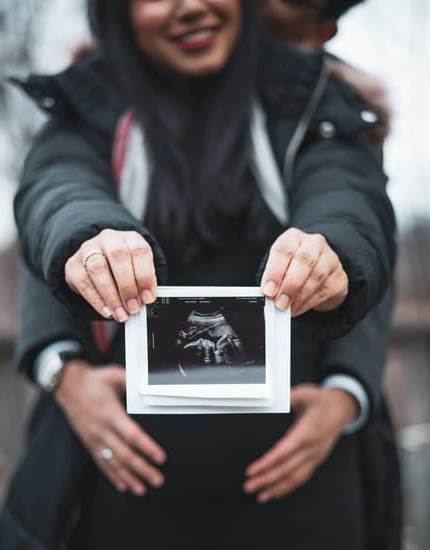What is a tubal pregnancy? A tubal pregnancy, also known as an ectopic pregnancy, occurs when a fertilized egg implants and grows outside the uterus, typically in the fallopian tube. This can lead to serious complications and requires immediate medical attention. Tubal pregnancies are relatively rare, occurring in about 2% of all pregnancies, but understanding the signs, symptoms, diagnosis, treatment options, and emotional impact is crucial for anyone at risk or experiencing this condition.
Tubal pregnancies occur for various reasons, including issues with the fallopian tubes that prevent the fertilized egg from traveling to the uterus, hormone imbalances that affect proper implantation of the egg, or previous reproductive health conditions. Recognizing and addressing these factors plays a vital role in effectively managing and treating tubal pregnancies.
In this article, we will explore in depth what a tubal pregnancy involves – from its symptoms to potential complications if left untreated. We will also delve into important topics such as diagnosis methods, treatment options available for those who may be affected by this condition.
Understanding tubal pregnancy is critical for individuals at risk or currently experiencing this situation. Let’s take a closer look at what you need to know about this complex reproductive health issue.
Signs and Symptoms of Tubal Pregnancy
Physical Symptoms of a Tubal Pregnancy
A tubal pregnancy, also known as an ectopic pregnancy, presents with a range of symptoms that may vary from woman to woman. Common physical signs of a tubal pregnancy include abdominal or pelvic pain, vaginal bleeding or spotting, shoulder pain, and dizziness or fainting. These symptoms usually appear between the 6th and 10th weeks of pregnancy and may be accompanied by gastrointestinal symptoms such as nausea or vomiting.
How to Differentiate Tubal Pregnancy Symptoms From Regular Pregnancy Symptoms
It can be challenging to distinguish the signs of a tubal pregnancy from those of a regular intrauterine pregnancy. However, persistent and severe abdominal or pelvic pain, abnormal vaginal bleeding, and shoulder pain are red flags that may indicate an ectopic pregnancy. It is crucial for women to seek medical attention if they experience any concerning symptoms, especially if they have a history of pelvic inflammatory disease, previous ectopic pregnancies, or fallopian tube surgeries.
Potential Complications if Left Untreated
If left untreated, a tubal pregnancy can lead to serious complications such as rupture of the fallopian tube with internal bleeding. This life-threatening emergency requires immediate medical intervention. Additionally, the emotional toll of experiencing a pregnancy loss can be immense for women and their partners. Therefore, recognizing the signs and symptoms of a tubal pregnancy and seeking prompt medical care is essential for preventing adverse outcomes.
Diagnosis of Tubal Pregnancy
When it comes to tubal pregnancies, early diagnosis is crucial for ensuring the health and safety of the pregnant individual. There are several methods used to diagnose a tubal pregnancy, including blood tests to check hormone levels, ultrasound imaging, and pelvic exams. These diagnostic techniques help healthcare providers determine the location of the pregnancy and assess potential complications.
One common method used in diagnosing tubal pregnancies is transvaginal ultrasound, which allows for a clearer image of the pelvic area and can detect an ectopic pregnancy as early as 5-6 weeks gestation. Blood tests that measure levels of the hormone human chorionic gonadotropin (hCG) can also aid in the diagnosis. If hCG levels are not rising as expected, it may indicate an ectopic pregnancy.
Early detection is critical in preventing severe complications associated with tubal pregnancies, such as rupture of the fallopian tube leading to internal bleeding. Misdiagnosis or delayed diagnosis can result in life-threatening situations for the pregnant individual. Therefore, proper diagnostic methods and timely medical intervention are imperative in managing tubal pregnancies.
| Diagnostic Method | Importance |
|---|---|
| Transvaginal Ultrasound | Clearer imaging for early detection |
| Blood Tests (hCG) | Aid in diagnosing through hormone level measurements |
Treatment Options for Tubal Pregnancy
When it comes to treating a tubal pregnancy, there are several options available, depending on the specific circumstances of the patient. The primary goal of treatment is to resolve the condition while minimizing the potential harm to the patient’s health and fertility.
One common medical intervention for tubal pregnancies is the use of methotrexate, which is a medication that stops the growth of the embryo and allows the body to reabsorb it. Methotrexate is typically recommended for patients who are stable and do not have heavy bleeding.
In cases where methotrexate is not a viable option or if the patient’s condition requires immediate attention, surgical intervention may be necessary. Surgical options for tubal pregnancy include laparoscopy, which involves making small incisions in the abdomen to remove the ectopic pregnancy, or laparotomy, which is a more invasive procedure that involves making a larger incision to access and remove the ectopic pregnancy.
Each treatment option carries its own set of risks and benefits, and it is crucial for healthcare providers to assess each patient’s individual situation before determining the most appropriate course of action.
It’s important to note that prompt medical attention is essential when dealing with a tubal pregnancy. Delaying treatment can lead to severe complications such as rupture of the fallopian tube, which can cause life-threatening internal bleeding. Therefore, individuals who suspect they may have a tubal pregnancy should seek immediate medical care in order to receive timely and appropriate treatment.
| Treatment Option | Characteristics |
|---|---|
| Methotrexate | Stops growth of embryo; allows body to reabsorb it. |
| Laparoscopy | Minimally invasive; removes ectopic pregnancy through small incisions in abdomen. |
| Laparotomy | More invasive; removes ectopic pregnancy through larger abdominal incision. |
Support and Counseling for Tubal Pregnancy
A tubal pregnancy can be a devastating experience for individuals and couples hoping to start or expand their families. The emotional impact of a tubal pregnancy can be profound, leading to feelings of grief, guilt, and even depression.
The loss of a pregnancy, coupled with the potential health risks and fears about future fertility, can take a toll on mental and emotional well-being. It is important for those affected by tubal pregnancies to acknowledge and address these emotions in order to begin the healing process.
Resources for Emotional Support and Counseling
Fortunately, there are numerous resources available for individuals and couples dealing with the emotional aftermath of a tubal pregnancy. Many healthcare providers offer counseling services or can refer patients to therapists specializing in pregnancy loss and reproductive issues. Support groups are also a valuable resource, providing individuals with the opportunity to connect with others who have had similar experiences. Additionally, online forums and social media groups dedicated to infertility and pregnancy loss can provide much-needed support and understanding.
How to Cope With Pregnancy Loss
Coping with the loss of a pregnancy due to a tubal pregnancy can be an ongoing process. It is important for individuals and couples to give themselves permission to grieve and seek support from loved ones or professional counselors. Engaging in activities that bring comfort or joy can also help alleviate some of the pain associated with pregnancy loss.
Furthermore, seeking out information about tubal pregnancies, treatment options, and future fertility can empower individuals as they navigate through their grief. By acknowledging their emotions, seeking support, and educating themselves, those affected by tubal pregnancies can gradually find acceptance and hope for the future.
Future Fertility After Tubal Pregnancy
After experiencing a tubal pregnancy, many women may have concerns about their future fertility. It is essential to understand the impact of a tubal pregnancy on future pregnancies and the various options available for those hoping to conceive again.
Firstly, it’s important to note that having one tubal pregnancy does not necessarily mean that future pregnancies will also be ectopic. However, having had a previous tubal pregnancy does increase the risk of another ectopic pregnancy in the future. According to research, women who have had one ectopic pregnancy have a slightly higher chance of having another one compared to those who have never experienced a tubal pregnancy.
For those who are concerned about their fertility after ectopic pregnancy, there are options available such as assisted reproductive technology (ART). ART includes methods like in vitro fertilization (IVF) which can help individuals conceive despite potential issues with their fallopian tubes. It’s important for individuals to discuss these options with their healthcare provider to determine the best course of action for their specific situation.
In terms of family planning after a tubal pregnancy, individuals should take into account any potential complications or risks associated with another ectopic pregnancy. It’s crucial to have an open and honest conversation with a healthcare provider regarding future fertility and the best steps to take. Additionally, seeking emotional support and counseling during this time can be beneficial in coping with the loss of a pregnancy and navigating decisions about future family planning.
Prevention of Tubal Pregnancy
Tubal pregnancies, also known as ectopic pregnancies, occur when a fertilized egg implants and grows outside the uterus, usually in the fallopian tube. This can lead to serious complications if not treated promptly. According to the American Pregnancy Association, approximately 1 in 50 pregnancies are ectopic, making it a relatively common reproductive health issue for women. So, what is a tubal pregnancy? It is important to understand that this condition can have serious consequences if not addressed early on.
There are several risk factors that can increase the likelihood of a tubal pregnancy. These include pelvic inflammatory disease (PID), previous tubal surgery, and smoking. Additionally, certain fertility treatments and techniques such as in vitro fertilization (IVF) can also raise the risk of ectopic pregnancy. It is crucial for women to be aware of these risk factors and take proactive measures to reduce their chances of experiencing a tubal pregnancy.
To prevent tubal pregnancies, here are some recommended strategies:
- Utilizing contraception effectively and consistently
- Seeking prompt treatment for any reproductive infections or conditions
- Avoiding behaviors that increase the risk of sexually transmitted infections
- Undergoing regular reproductive health check-ups for early detection of potential issues
By following these preventative measures and being vigilant about reproductive health, individuals can reduce their risk of experiencing a tubal pregnancy and its associated complications. Regular check-ups with healthcare providers can also help identify any potential concerns early on and facilitate timely intervention if necessary.
The Importance of Seeking Medical Attention
In conclusion, understanding what a tubal pregnancy is and recognizing its signs and symptoms are crucial for seeking prompt medical attention. A tubal pregnancy occurs when a fertilized egg implants and grows outside the uterus, most often in the fallopian tube.
This can lead to serious complications such as internal bleeding and rupture of the fallopian tube if left untreated. It’s important for individuals to be aware of the potential risks and to seek immediate medical care if they experience any symptoms or suspect a tubal pregnancy.
Early diagnosis of a tubal pregnancy is essential in preventing life-threatening complications. Medical professionals use various methods such as ultrasound scans and blood tests to confirm a tubal pregnancy. Delays in diagnosis can result in misdiagnosis, which may put the individual at risk for further health complications. Therefore, it is crucial for anyone experiencing symptoms of a possible tubal pregnancy to seek medical attention promptly.
Advocating for reproductive health education and awareness is also important in preventing tubal pregnancies. Knowing the risk factors associated with this condition and taking preventive measures, such as practicing safe sex and using contraception consistently, can help reduce the likelihood of experiencing a tubal pregnancy.
Additionally, regular reproductive health check-ups can aid in early detection and intervention if a tubal pregnancy does occur. By being informed about the signs, symptoms, and risk factors of tubal pregnancies, individuals can take proactive steps towards their reproductive health and well-being.
Frequently Asked Questions
What Happens When You Have a Tubal Pregnancy?
When you have a tubal pregnancy, the fertilized egg implants itself in the fallopian tube instead of traveling to the uterus. This can lead to serious complications and health risks for the woman.
Can a Baby Survive a Tubal Pregnancy?
Unfortunately, a baby cannot survive a tubal pregnancy. Since the fallopian tube is not designed to support the growth of a fetus, it can rupture as the embryo grows, leading to life-threatening internal bleeding for the mother.
What Is the Main Cause of Tubal Pregnancy?
The main cause of tubal pregnancy is damage or blockage in the fallopian tubes. This can be due to inflammation from a previous infection, scarring from a previous surgery, or abnormal development of the tubes. Other risk factors include smoking, certain fertility treatments, and previous tubal pregnancies.

Welcome to my fertility blog. This is a space where I will be sharing my experiences as I navigate through the world of fertility treatments, as well as provide information and resources about fertility and pregnancy.





